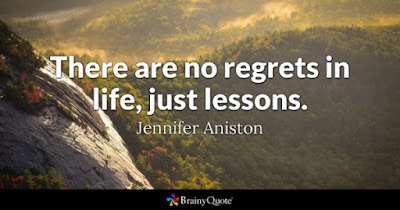Why Is Delegating So Hard?
Delegation is a concept heard a lot in the business world. Most people think of it as the boss dumping the work they don't want to do on their employees. It can certainly happen that way, but I think it is far more complex. Delegation is getting a team to work as efficiently and effectively as possible. It becomes less about getting rid of work and more about having the person that is best suited for a job doing a task. For instance, I know how to open Photoshop and I can do some very basic things. I am not going to be quick about it and the product I produce nobody would want. Taking longer for a worse product is the exact opposite of what we are aiming for. If I have a project that needs design work, I need to delegate that to a Graphic Designer, it is more efficient and effective. Learning to delegate involves knowing the skills and abilities of the people on your team and being honest about what you aren't good at.
Delegation is also about time, there is a transfer of knowledge that has to take place for someone else to take on a task. If it takes just as much time to get someone up to speed to be able to handle a task that it would take you to do it yourself then it feels like a wasted effort.
But you have to play the long game when it comes to delegation. It is about taking more time now so it can save you in the future. It is about teaching others new skills so they can be more effective. It is about learning how to communicate and work better together so you can hand off tasks to each other quickly. It is about discovering more about each person to know what they are best at, and where they provide the greatest value to the team.
The last challenge we have with delegation, is we wait until we are overwhelmed. I like the quote by Dave Ramsey about trading short term failures for long term competency. Failure is a harsh word but when we start to delegate there is a resistance. There is an investment period in delegation and eventually a payoff. If things are hectic all you feel is that investment part and it is hard to think of the payoff coming when you where overwhelmed to begin with. Delegation is something we need to think about and practice before we are forced into it. Once a week look at your work and ask yourself what you could easily hand over to someone else to free up your time. If you find it hard to think what that would be or who it could go to then you know where to start. Start figuring it out now because some point in the future you will be glad you did.
Delegation is also about time, there is a transfer of knowledge that has to take place for someone else to take on a task. If it takes just as much time to get someone up to speed to be able to handle a task that it would take you to do it yourself then it feels like a wasted effort.
But you have to play the long game when it comes to delegation. It is about taking more time now so it can save you in the future. It is about teaching others new skills so they can be more effective. It is about learning how to communicate and work better together so you can hand off tasks to each other quickly. It is about discovering more about each person to know what they are best at, and where they provide the greatest value to the team.
The last challenge we have with delegation, is we wait until we are overwhelmed. I like the quote by Dave Ramsey about trading short term failures for long term competency. Failure is a harsh word but when we start to delegate there is a resistance. There is an investment period in delegation and eventually a payoff. If things are hectic all you feel is that investment part and it is hard to think of the payoff coming when you where overwhelmed to begin with. Delegation is something we need to think about and practice before we are forced into it. Once a week look at your work and ask yourself what you could easily hand over to someone else to free up your time. If you find it hard to think what that would be or who it could go to then you know where to start. Start figuring it out now because some point in the future you will be glad you did.




Comments
Post a Comment